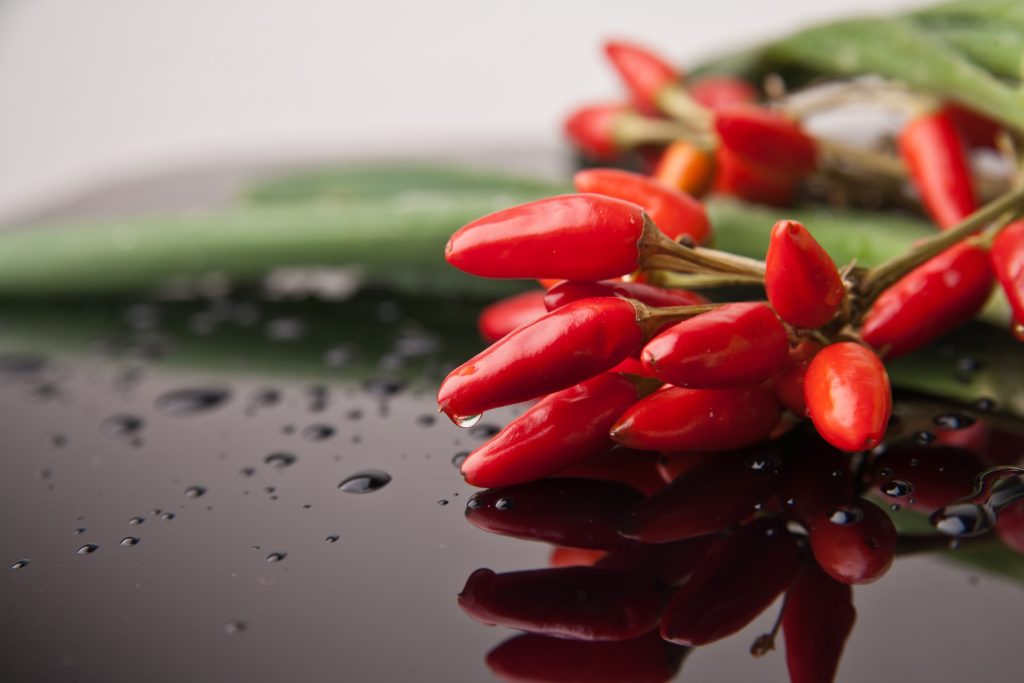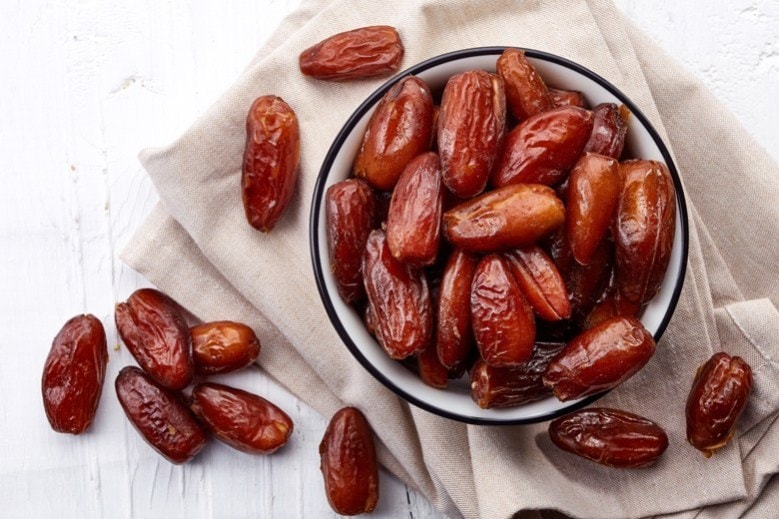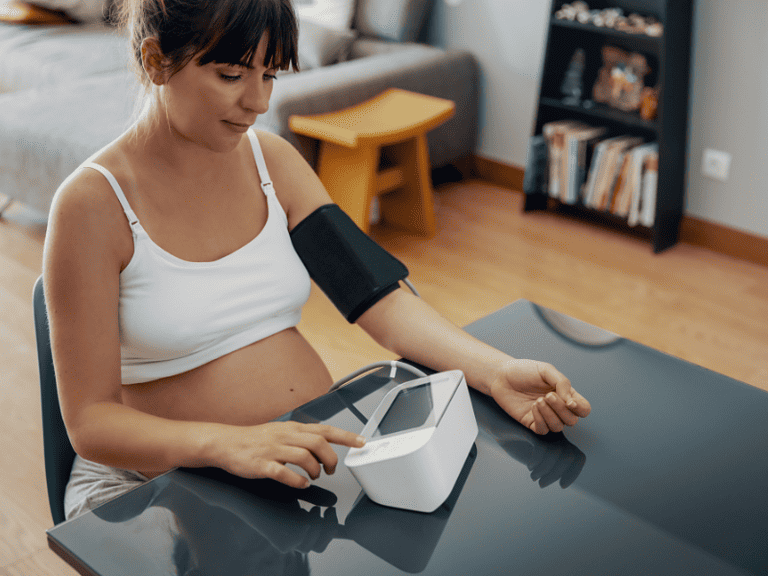There’s nothing like a woman approaching her due date, the impatience creeps in along with the discomfort. Not to mention the lack of sleep because of that 39-40 week belly! Throw in some fluid retention, swelling and the inability to really eat and the incessant need to use the bathroom for good measure – it’s positively exhausting.

Many women turn to natural home remedies to try and move things along, and if the old walk around the block hasn’t helped much you may be turning to some foods to help get labour started!
In this blog, I review the evidence and common foods that women use to help induce labour.
Dates
This is one of the most popular labour-inducing foods out there! And dates as a helpful fruit for labour has likely risen to popularity out of its cultural significance in the Quran, where dates are mentioned for their role in childbirth.
Dates are dried fruit and packed with fibre, B vitamins, minerals and of course that sweet sticky caramel-like goodness on the inside. You’ll find them in 99% of bliss ball recipes (except these ones). Plus, they carry some other awesome nutritional benefits.

Overall, the studies suggest that eating about 70-80 grams of dates (about 7 pieces) each day in late pregnancy around the 37-38 week mark can be helpful in reducing the need for oxytocin (Pitocin) intervention in labour, and improving cervical ripeness scores – a measure of the softening of the cervix in preparation for dilation and labour
(Razali et al., 2017 & Kordi et al., 2017).
Interestingly, a small study showed that women who were told to eat 50 g of dates after delivering their placenta had less blood loss in the first hour after delivery compared to women who received oxytocin (Pitocin) treatments (Khadem et al., 2007).
So munching on some dates is probably not a bad move during late pregnancy, however, you need to be eating about 7 pieces per day to get a benefit and don’t expect those contractions to come on any sooner, however, if you are planning a vaginal delivery or if you’re being induced and want a vaginal delivery, dates may help.
If you have gestational diabetes, speak to your dietitian about this before loading up on dates as this may cause rises in your blood glucose levels that may not be ideal for you or your baby and none of these studies were conducted with women with gestational diabetes.
Red Raspberry Leaf Tea
Another cult favourite, red raspberry leaf tea praised for its labor-inducing effects in late pregnancy. I have seen women sipping on it religiously in the last weeks of pregnancy, but does it really help?

There is some evidence to show that drinking red raspberry leaf tea towards the end of pregnancy may help shorten the first stage of labour (Parsons et al., 1999). Other studies about intervention and birth complications showed that there was less use of forceps-assisted deliveries for those women who drank red raspberry leaf tea by 11% (Simpson et al., 2001).
The compound that may be responsible is fragarine, found in red raspberry leaves, helping to firm up the pelvic muscles, including the walls of the uterus, theoretically, aiding in delivery (Gruber et al., 2011).
There’s probably little harm sipping on 1-3 cups of this tea per day from 32 weeks gestation onwards, and given the American Pregnancy Association recommends tea to reduce interventions during childbirth.
Note that going overboard with drinking red raspberry leaf tea can result in a laxative effect and may increase your trips to the bathroom even more! If you are getting Braxton Hicks contractions or experience spotting, then stop drinking red raspberry leaf tea.
Evening Primrose Oil
A midwife hack is evening primrose oil, claiming to help the cervix thin and dilate and prepare the body for labour. You can take it as a capsule or rub the oil directly onto the cervix in the last weeks of pregnancy.
The studies that have been done on evening primrose oil capsules you take orally have shown now speeding up of labor or shortening of labor, and in fact may be associated with more intervention during childbirth including vacuum extraction and rupturing of membranes (Dove & Johnson, 1999).

A more recent study has shown there are not any positive benefits of evening primrose oil for labour (Kalati et al., 2018).
I’m voting a thumbs down on this one, with the potential for risk to baby and no real signs of benefit, give it a miss.
Women with placenta previa should AVOID this herb, speak to your doctor before trying this!
Spicy Food
Going out to eat something spicy like Thai curry or a spicy Mexican dish is one of the old fashioned ways to bring about labour a little sooner. Some women swear by it, others say it made no difference.

The theory is spicy foods are a mild gastrointestinal irritant, causing the smooth muscle in the gut to contract which may in turn help get the uterus started with contractions.
As you might have guessed, there’s no evidence at this time to support that spicy food reduces the time to contractions or shortens labour, so for now, it’s trial and error!
I hope this has cleared things up for all you mummas out there wondering what foods can help with labour as you wait for your precious arrival. At the end of the day, time will always be the best home remedy for baby to arrive. In the meantime, kick up your feet and try and relax!
If you need some advice about nutrition before, during or after pregnancy, get in touch to book in a consultation to develop a tailored plan to ensure you and your baby are getting the right nutrition.







